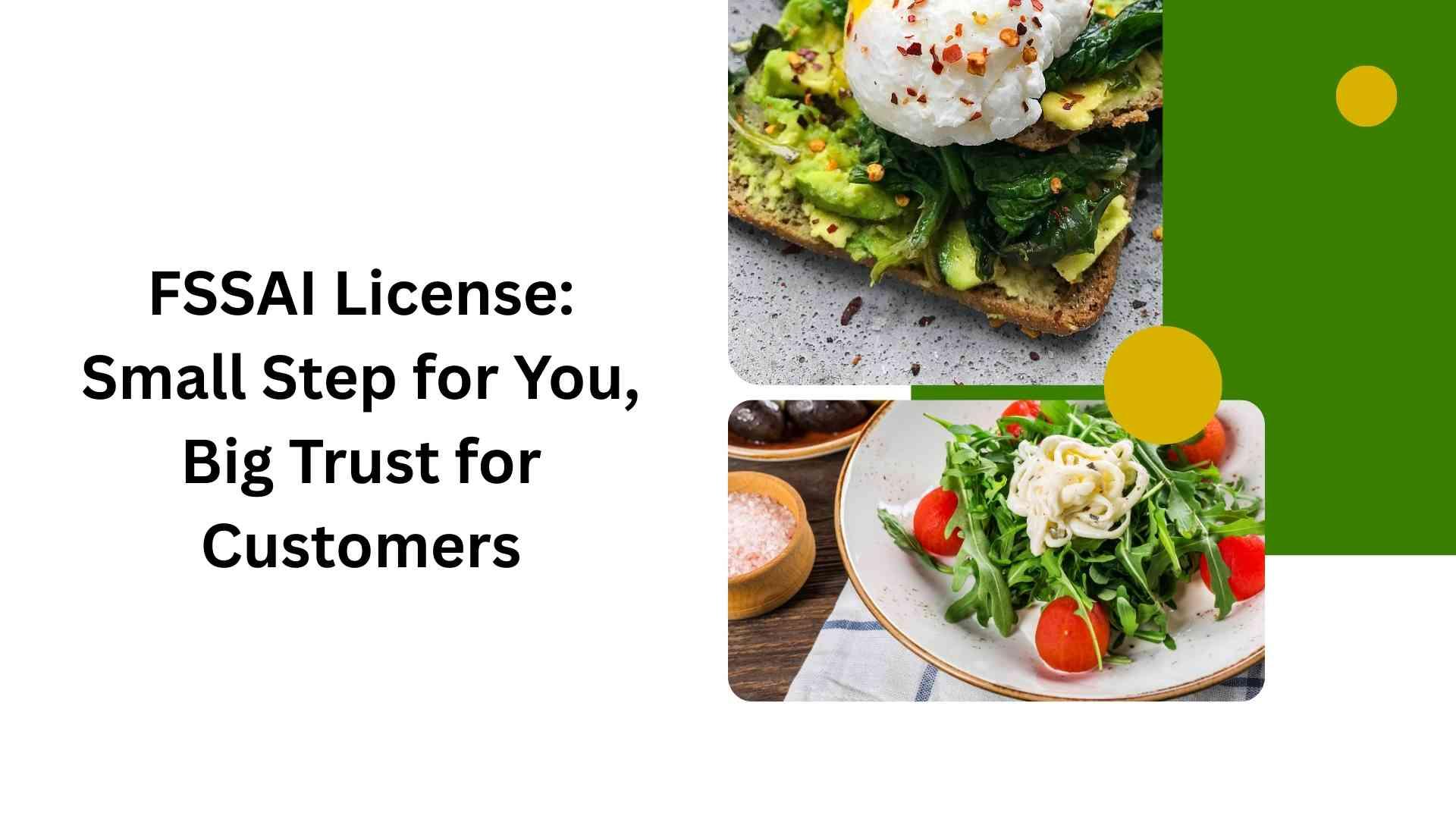In the food industry, trust is everything. Whether you're selling home-baked goods, running a restaurant, or manufacturing packaged snacks, your customers want assurance that what they’re consuming is safe and hygienic. That’s where the FSSAI License comes into play. Obtaining an FSSAI license may seem like a minor task, but it’s a powerful move that builds credibility, ensures legal compliance, and wins customer confidence. This guide will walk you through everything you need to know about getting an FSSAI license in India — from benefits and categories to the registration process.
What is an FSSAI License?
Introduction to FSSAI
The Food Safety and Standards Authority of India (FSSAI) is the regulatory body under the Ministry of Health & Family Welfare. It governs the food business operations in India by setting standards for food safety and hygiene. An FSSAI license is mandatory for anyone involved in the manufacturing, processing, packaging, storage, distribution, or sale of food products in India.
Why FSSAI License Matters for Your Food Business
The Power of Legal Certification
Here’s why getting an FSSAI license is a small step with a huge impact:
-
Builds Customer Trust: Consumers feel safer buying from a certified vendor.
-
Ensures Food Safety Compliance: You meet all hygiene and safety standards mandated by law.
-
Boosts Marketability: FSSAI-certified products are more acceptable in retail stores and online platforms.
-
Access to Government Schemes: Only registered businesses can avail food-related schemes, subsidies, and benefits.
-
Avoid Legal Penalties: Non-compliance can lead to heavy fines or business closure.
-
Improves Branding: The FSSAI logo on your packaging enhances product credibility.
Who Needs an FSSAI License?
Applicability of the License
The FSSAI license is required by all types of food businesses, including:
-
Restaurants and cafes
-
Cloud kitchens and home bakers
-
Food trucks and tiffin services
-
Food manufacturers and packagers
-
Importers and exporters of food
-
Retail chains and supermarkets
-
Food delivery platforms
-
Wholesalers and distributors
Whether you’re a one-person home kitchen or a multi-state business, you must register or get licensed with FSSAI depending on your scale.
Types of FSSAI Licenses
There are three types of FSSAI licenses based on the size and scale of operations:
Basic Registration
-
For small-scale/home-based businesses
-
Annual Turnover: Up to ₹12 lakh
State License
-
For medium-sized businesses like manufacturers, retailers, and distributors
-
Annual Turnover: ₹12 lakh – ₹20 crore
Central License
-
For large food businesses, import/export firms, or operations across states
-
Annual Turnover: Above ₹20 crore or pan-India presence
Each license has its own documentation, validity, and fee structure.
Documents Required for FSSAI License
Get Your Papers in Order
The list of documents may vary by license type, but commonly required ones include:
-
Passport-sized photo of the applicant
-
PAN Card and Aadhaar Card
-
Proof of business premises (rent agreement, electricity bill)
-
Food safety management plan
-
List of food products to be dealt with
-
Business registration certificate (Shop Act, MSME, or Company Registration)
-
NOC from municipality or local body (if applicable)
For manufacturers: layout of the processing unit, water test report, and machinery details may also be required.
How to Apply for an FSSAI License Online
Go to the FSSAI Portal
Start by visiting the official FSSAI registration website (FOSCOS portal).
Complete the Registration Form
Provide your personal and business information, including food category, business address, and upload your PAN card.
Double-Check and Submit
Review the form thoroughly to ensure accuracy before submitting it online.
Make the Payment
Pay the required fee based on the type of license (Basic, State, or Central) through secure online payment options
Verify Using OTP
Enter the OTP received on your registered mobile number or email to confirm your identity.
Site Inspection (If Applicable)
In some cases, FSSAI officials may conduct a physical inspection of your premises before approval.
Download Your FSSAI Certificate
Once approved, the license will be sent to your email or can be downloaded directly from the portal.
Validity and Renewal
Stay Compliant Long-Term
-
The license is valid for 1 to 5 years, depending on what you choose at the time of application.
-
Renewal must be done at least 30 days before expiry.
-
Late renewals attract a fine of ₹100 per day after the due date.
How FSSAI License Builds Brand Value
From Legal Compliance to Market Credibility
A food business that displays its FSSAI license number and logo on products, menus, and marketing materials automatically gains:
-
Higher consumer confidence
-
Better online delivery platform ratings (Zomato, Swiggy require it)
-
Wider acceptance in retail markets
-
Opportunity to export food products
-
Eligibility for food safety awards and recognition
Common Mistakes to Avoid
-
Choosing the wrong license type
-
Not renewing on time
-
Ignoring inspections or verification steps
-
Using outdated documents
-
Not displaying the license number on packaging or storefronts.
Note: You can Apply for Tatkal FSSAI Registration from our website
Conclusion
An FSSAI license is more than a legal requirement — it’s a commitment to quality and safety. For food entrepreneurs, it’s a small but essential step toward earning customer trust, expanding legally, and building a recognizable brand.



